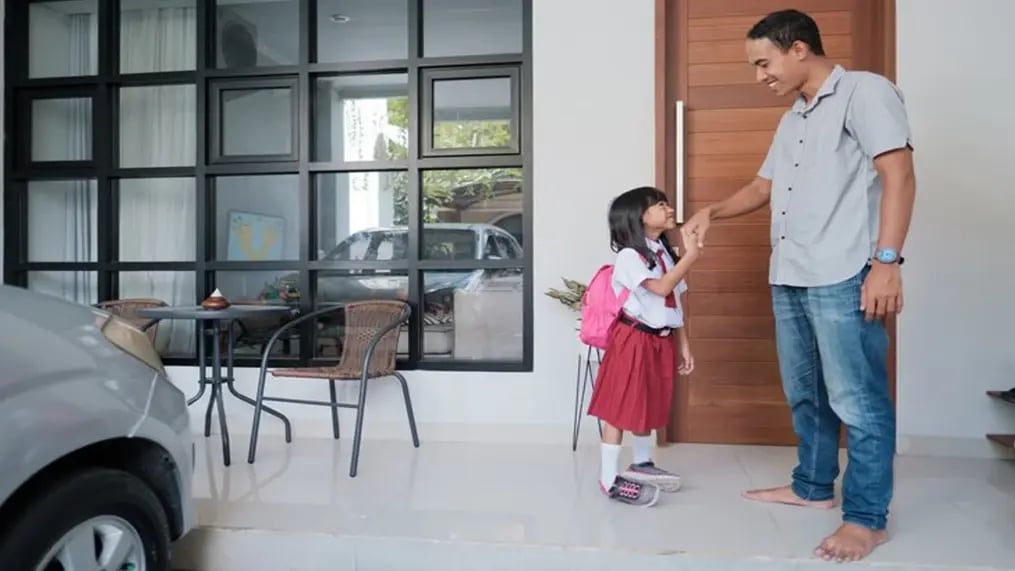- Create Goodbye Rituals
- Make Goodbyes Short And Positive
- Be Consistent
- Keep Your Word
- Be Specific
- Practice Separations
- Leave A Comfort Toy
- Introduce New Caregivers Gradually
Separation anxiety is painful for both parents and children. While most infants, toddlers, and young children throw a tantrum on being separated from their primary caregiver, they do not understand the painful effect their tantrums have on the latter. Though it is normal for kids to get upset or worried when their parents leave them, especially as infants and toddlers, it can be troubling if the habit persists well past pre-school-hood.
Separation anxiety is commonly seen in infants aged 6 months to children aged 3, but it may vary in children, beginning early or persisting for long after that. If separation anxiety is not resolved in children, it can lead to formation of unhealthy clinginess with parents, co-dependency, and lack of social evolvement. Therefore, it is ideal to combat it early, while there is time. But why do kids do it?
As infants begin grasping the concept of object permanence and identifying the primary caregiver, the lack of visual or auditory presence can create separation anxiety in them. They may feel scared that the absence of their parents is permanent as they still do not understand temporary separations. So, parents can deal with separation anxiety in children with the strategies listed below.
Strategies For Dealing With Separation Anxiety In Kids
1. Create Goodbye Rituals

Create fun goodbye rituals with your kids. Separations should not be sad but fun for young children. Be it an elaborate clapping, hand gesture routine, three flying kisses or a particular way of verbally biding goodbye, but do not make sneaking past their cribs or beds a habit. Interact and wish them farewell, as it will lessen their anxiety of you leaving while they sleep or play.
2. Make Goodbyes Short And Positive
It is important to keep goodbyes short and sweet. Though you may feel emotional about leaving your kid over at their aunt’s house for a play date with their cousins, do not show tears or signs of being upset. Children are intuitive about these things and quickly pick it up. It will not take them long to start bawling. So, smile, say bye in a positive manner, and keep your emotions together till out of sight and hearing. This will help make separations and transitions smoother in the future.
3. Be Consistent
Be consistent while biding your kid's bye or dropping them off to pre-school, to avoid unexpected factors causing distress and triggering separation anxiety. This includes maintaining goodbye rituals and keeping farewell times short and smooth.
4. Keep Your Word

Kids are big on promises and turn out to be sincere, responsible adults if they see their parents keeping their world and fulfilling promises. If your work finishes at 7pm, then promise return and bonding time accordingly. Unless a big emergency strikes, try to prioritize promises made to children. Keeping or missing one can create a massive impact on them, triggering or enhancing separation anxiety in older kids as well.
5. Be Specific
While discussing times of return or picking up, try to be specific in a way your child understands. If your kid does not know how to read time yet, then explain it in their timing notions. For example, if you see them at 5pm, then mention you will see them after nap time or during evening snacks. This will help combat separation anxiety and give them something to look forward to. In case you are gone for a few days, make it a few moons or a few ‘sleeps’ till they see you again.
6. Practice Separations

It is ideal to practice temporary separations with your kid. Leave them for a sleepover at their grandparent’s house, or aunt’s house, or schedule playdates at their friend’s house. Even if it is for a few hours, get your kids accustomed to being around other kids and adults without requiring your constant presence and assistance. This will make life easier for them and you eventually.
7. Leave A Comfort Toy
If your kid feels lonely, leave them a comforting toy or blanket to keep them company while you are away. This will help transfer their co-dependent instincts to a toy, which they will eventually grow out of. But it will make goodbyes much easier and less messy.
8. Introduce New Caregivers Gradually
If you plan to introduce a new babysitter to them, stranger or family, do so gently. It is ideal to hang out together, the three of you to understand if the dynamics work and for sensing your kid’s comfort level with them before taking a short break from them. Let them bond. If a couple of these get-togethers go well, then try leaving them together. This process will make transitions and separations much easier for working and busy parents daily.
Conclusion
Separation anxiety can be a sundowner on relationships and social events unless handled early. Thankfully, this quick guide and consistent practice will resolve this anxiety in no time in children.
Kaushiki Gangully is a content writing specialist with a passion for children's nutrition, education, and well-being. With more than five years of writing experience and a science-based background, she provides nuanced insights to help families raise happy, healthy kids. Kaushiki believes in making learning and healthy eating fun, empowering parents with practical, easy advice.
The views expressed are that of the expert alone.
The information provided in this content is for informational purposes only and should not be considered a substitute for professional medical advice, diagnosis, or treatment. Always seek the advice of your physician or another qualified healthcare provider before making any significant changes to your diet, exercise, or medication routines.










